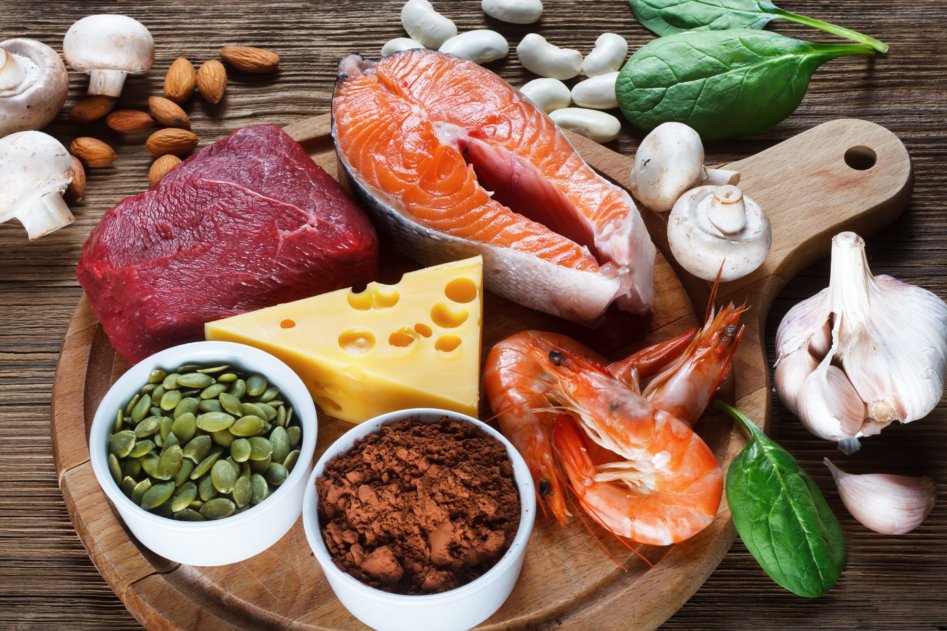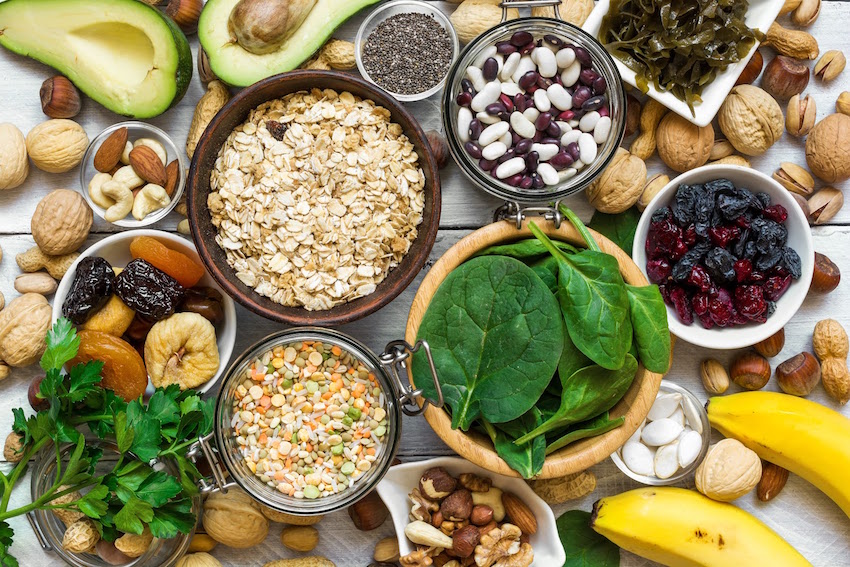Zinc is one of the vital elements that help to digest other vitamins, boosts functioning of organs and systems, and keeps the organism fully functioning. So why exactly it is important and what products contain it? Find the answers below.
10 benefits zinc foods provide
- Zinc boosts metabolism. It participates in the formation and breakdown of proteins, fats, and carbs.
- In early age, it is even more significant: zinc is responsible for proper development. It participates in cell reproduction, reproductive system and sex hormones formation.
- It cleanses the organism of toxins, including heavy metals and led.
- It activates immune reactions against viruses and aids healing.
- It supports immunity by aiding to form white blood cells, protective protein, and hormones.
- It forms part of insulin, which regulates sugar levels in the blood.
- It ensures the healthy development and growth of a fetus.
- It is the secret for healthy skin and hair, particularly by slowing down the aging processes.
- It sustains smell and taste functions.
- It provides retina stability and lens transparency.
Symptoms of zinc deficiency
The lack of zinc in the organism is followed by exhaustion, frequent allergies and infections, bones fragility, and white spots appearing on nails. Even the slight lack of zinc affects the functioning of the immune system and the opportunity to resist tumor formation. The other symptoms include:
- problems with healing;
- irritability;
- memory loss;
- a slowdown of growth and development;
- late puberty;
- hair loss;
- loss of appetite, smell and taste;
- fragile nails;
- frequent colds and infections;
- neuropsychiatric disorders;
- allergies and dermatitis;
- anemia;
- inattentiveness, decrease in concentration.
Foods that contain zinc (per 100 g)

- Dairy products — 0,09-0,59 mg
- Cheeses — 2,66-4,36 mg
- Hen eggs — 1,29 mg
- Boiled hen eggs — 1,05 mg
- Beef — 4,87-8,41 mg
- Pork — 2,32-3,5 mg
- Fish — 0,43-2,44 mg
Zinc rich foods for vegetarians (per 100 g)
Crops & cereals
- Wheat germ — 12,29 mg
- Wheat bran particles — 7,27 mg
- Rice hull — 6,04 mg
- Wild rice — 5,96 mg
- Rye flour — 5,04 mg
- Durum wheat — 4,16 mg
- Oats — 3,97 mg
- Oatmeals — 3,64 mg
- Popcorn — 3,44 mg
- Oat bran — 3,11 mg
- Wholegrain wheat flour — 2,6 mg
- Other flour types — 2,63-3,46 mg
Nuts & seeds
- Roasted sesame — 10,23 mg
- Poppy seeds — 7,9 mg
- Roasted pumpkin seeds — 7,64 mg
- Pinons — 6,45 mg
- Cashew — 5,78 mg
- Roasted cashew — 5,6 mg
- Sunflower seeds — 5 mg
- Roasted sunflower seeds — 5,29 mg
- Flax seeds — 4,34 mg
- Brazil nut — 4,06 mg
- Other nuts — 2,2-3,3 mg
Herbs high in zinc
- Dried basil — 7,1 mg
- Celery seeds — 6,93 mg
- Dried thyme — 6,18 mg
- Mustard seeds — 6,08 mg
- Cumin seeds — 5,5 mg
- Dried parsley — 5,44 mg
- Fennel seeds — 5,2 mg
- Dried cilantro — 4,72 mg
- Coriander seeds — 4,7 mg
- Ground sage — 4,7 mg
- Ground turmeric — 4,35 mg
- Paprika — 4,33 mg
- Dried estragon — 3,9 mg
Legumes
- Soy — 4,89 mg
- Lentil — 4,78 mg
- Soy flour — 4,1 mg
- Cannellini beans — 3,67 mg
- Black beans — 3,65 mg
- Chickpea — 3,43 mg
- Pea — 3,01 mg
Mushrooms
- Shiitake mushrooms — 7,66 mg
- Swiss brown mushrooms — 1,1 mg
Seaweed
- Dried agar — 5,8 mg
- Dried spirulina — 2 mg
- Drift-weed — 1,23 mg
- Nori — 1,05 mg

How to consume products rich in zinc
Remember that this mineral is better digested better with a big amount of proteins and vitamin A. Avoid foods rich in iron, calcium, and led. It is better to consume these elements separately to boost the metabolism. The daily amount of zinc differs depending on age:
- girls younger than 6 months – 2 mg;
- boys younger than 6 months – 3 mg;
- kids from 6 months to 3 years – 3 mg;
- kids 4-8 years old – 5 mg;
- kids 9-13 years old – 8 mg;
- 14-18-year-old girls – 9 mg;
- 14-18-year-old boys – 11 mg;
- 19-50-year-old women – 12 mg;
- 19-50-year-old men – 15 mg;
- women older than 50-10 mg;
- men older than 50 -13 mg;
- pregnant women younger than 18-15 mg;
- pregnant women older than 19-14 mg.
If the amount of zinc exceeds 150 mg during a day, you can expect a toxic effect.






